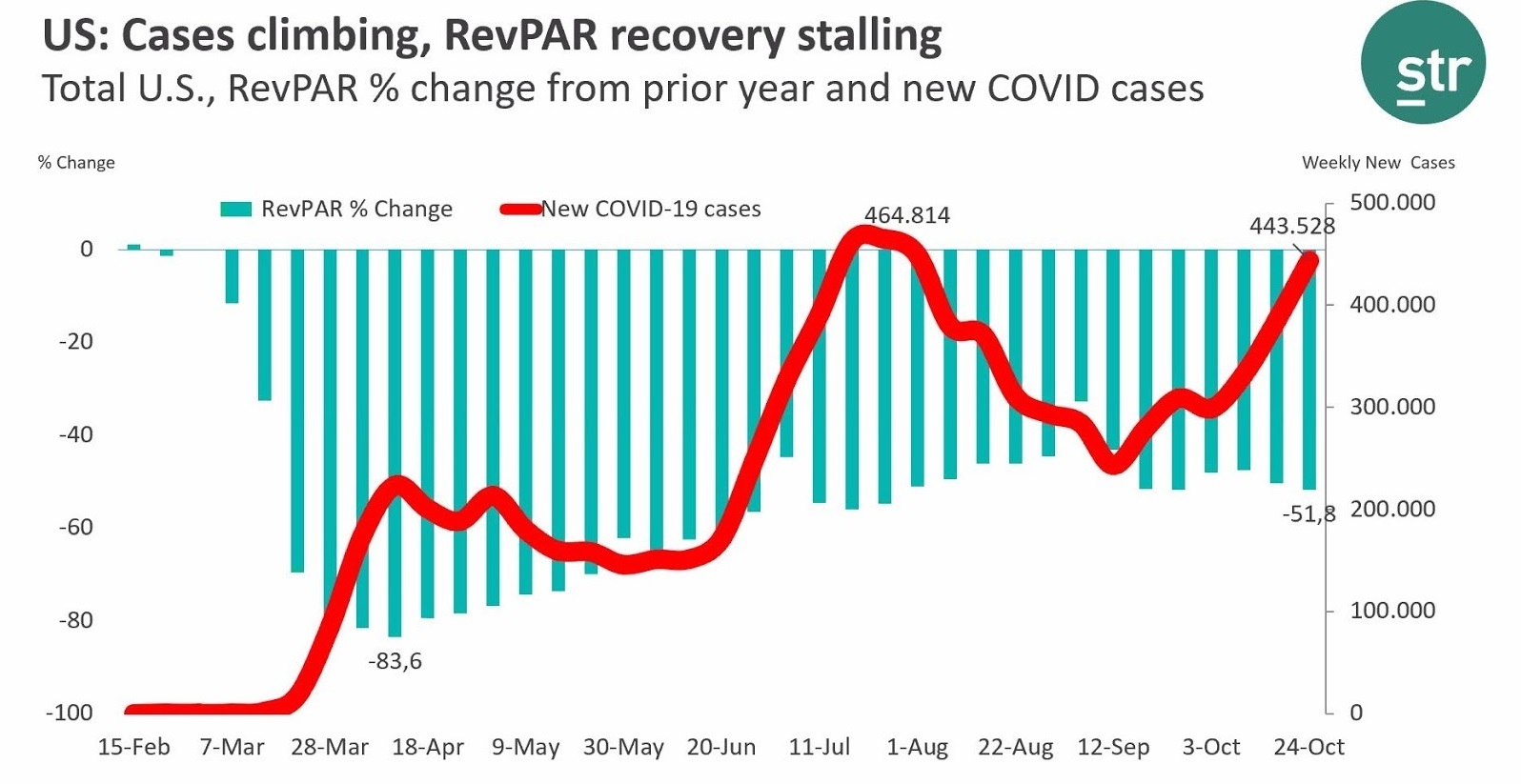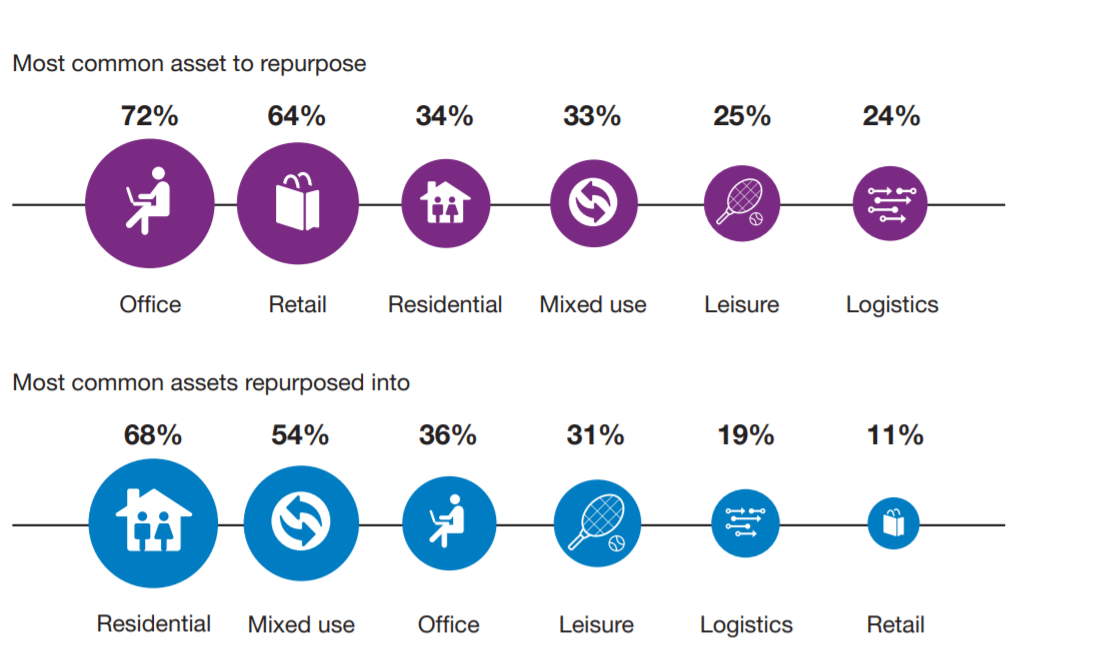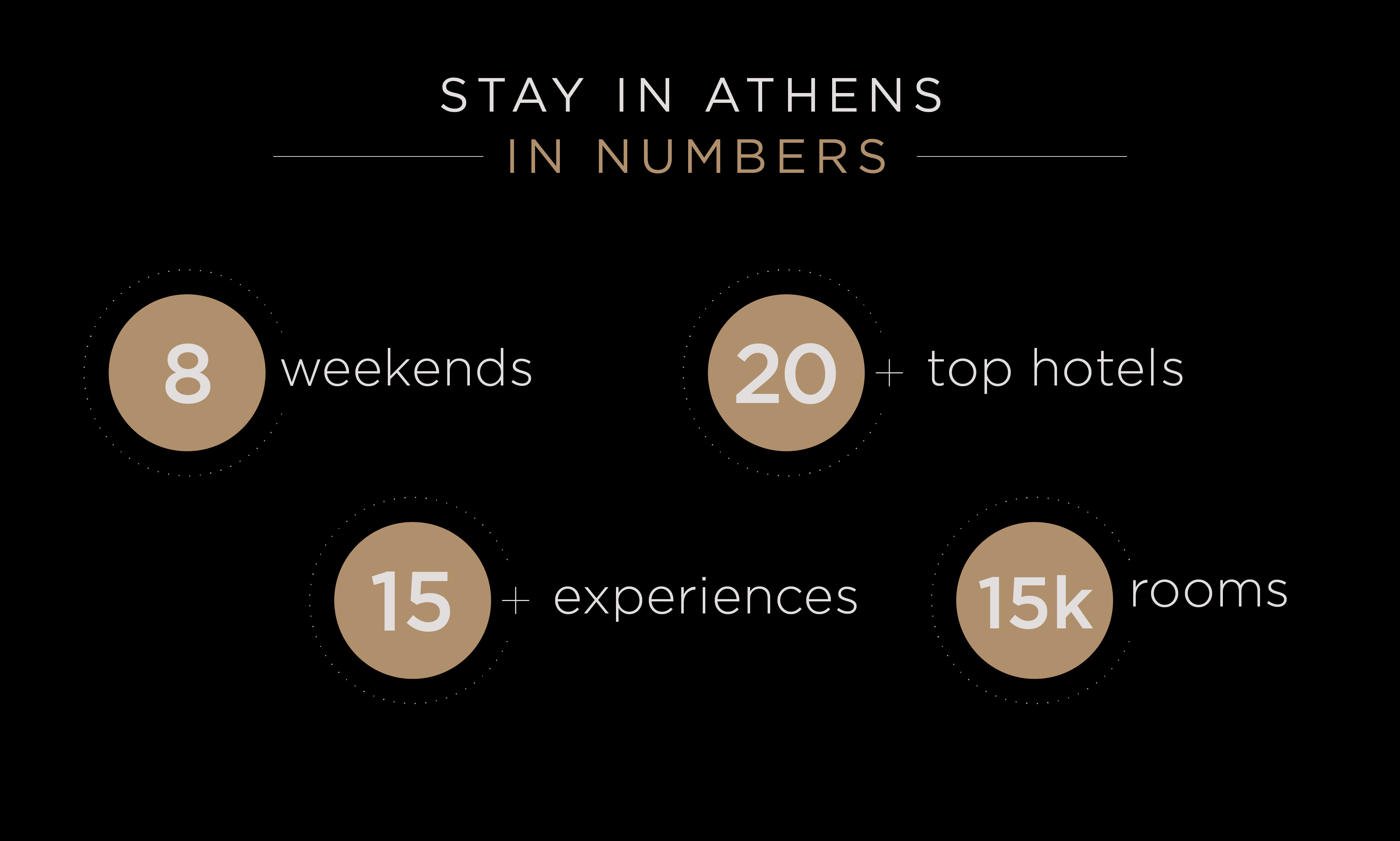Hybrid accommodation: How hotels are pivoting to create new revenue streams
November 18, 2020
Posted By: Dr Pantazis Pastras
Generating an additional source of revenue is at stake in the hotel sector due to the prolonged effects of COVID-19 on international travel. Hotel owners and operators have many lessons to learn from the likes of hospitality brands that drive the optimum use of property portfolio and high performance. Referred to as hybrid hotels, these multi-purpose buildings cement their position as local leaders through the provision of a variety of services for both visitors and residents. Hybrid hotels apply in any location and here we focus on the trends and themes underlying the transition of non-hybrid hotels to a new role as community hubs within their cities and neighbourhoods.
In this period when the implications of Covid-19 reinforce uncertainty, the way we used to do things may need to change a little. This is a real challenge for hotels all over the world when we take a look at their recent performance. According to data provided by STR, US hotels REVPAR went down from 83.6 to 51.8 percent during the pandemic. Also, the respective drop in European hotels ranged from 89.4 to 64.8 during the pandemic.

Source: Presentation by Kelsey Fenerty (Research Analyst, STR) at Global ReformBnB Forum #4 (November 4, 2020)
Such a real challenge requires a spirit of creativity and innovation, which often lie in making available resources be used more efficiently and with new purposes. So let’s see how hotels can make the most of their assets and engage more closely and effectively with their local communities.
The market shift by Airbnb
The first step takes us back to the outset of COVID-19 and to the initiatives of the unicorn platform that hotels love to hate. As soon as Airbnb pinpointed why the pandemic had shifted the attention of consumers from short-term to mid-term rentals and from cities to rural areas, it didn’t take long to put a new strategy in place. This involved providing offerings and information for new audiences such as students and remote workers, with the concept of nomadic travel at the core of campaign messages. As part of the continuous approach to diversifying the range of consumer experiences, Airbnb has made clear that sometimes demand creates its supply.
The forces driving behind hybrid hotels
Besides Airbnb, Marriott and aparthotels in London have recently been among top performers in engaging local consumers with the option of selecting an extended stay inventory, whether they want to live, work, or play. However, the mix of work and overnight stays under the umbrella of supplementary services is anything but a new concept.
The real estate sector was the first to experiment with multi-purpose buildings long before the coronavirus. Late in 2019 PWC identified mixed-use as the second most popular property type in a survey among investors considering what to do with defunct assets. In the words of one respondent: “the biggest opportunity lies in the conversion of office buildings into serviced apartments or other types of residential properties with characteristics and offerings assimilated to hotels.”

Source: PWC, 2019
For more than five years, the hotel sector itself has seen several initiatives where the provision of overnight stays and office space enable co-working and interacting. These vary from the likes of major hospitality groups such as Accor (e.g. WoJo and Accor Local) to a wide range of independent ventures such as Zoku, Ace Hotels, Hoxton/Ennismore, CitizenM, and Kerten Hospitality. The success of these initiatives lies in their capacity to provide tailor-made services to a community of customers made up of guests and locals alike.It is suggested that hotels can benefit from an increase in their turnover by up to 20% if they endeavour to shift to a “hybrid” hospitality model.
In this period when the implications of Covid-19 reinforce uncertainty, the way we used to do things may need to change a little. This is a real challenge for hotels all over the world when we take a look at their recent performance. According to data provided by STR, US hotels REVPAR went down from 83.6 to 51.8 percent during the pandemic. Also, the respective drop in European hotels ranged from 89.4 to 64.8 during the pandemic.

Source: Presentation by Kelsey Fenerty (Research Analyst, STR) at Global ReformBnB Forum #4 (November 4, 2020)
Such a real challenge requires a spirit of creativity and innovation, which often lie in making available resources be used more efficiently and with new purposes. So let’s see how hotels can make the most of their assets and engage more closely and effectively with their local communities.
The market shift by Airbnb
The first step takes us back to the outset of COVID-19 and to the initiatives of the unicorn platform that hotels love to hate. As soon as Airbnb pinpointed why the pandemic had shifted the attention of consumers from short-term to mid-term rentals and from cities to rural areas, it didn’t take long to put a new strategy in place. This involved providing offerings and information for new audiences such as students and remote workers, with the concept of nomadic travel at the core of campaign messages. As part of the continuous approach to diversifying the range of consumer experiences, Airbnb has made clear that sometimes demand creates its supply.
The forces driving behind hybrid hotels
Besides Airbnb, Marriott and aparthotels in London have recently been among top performers in engaging local consumers with the option of selecting an extended stay inventory, whether they want to live, work, or play. However, the mix of work and overnight stays under the umbrella of supplementary services is anything but a new concept.
The real estate sector was the first to experiment with multi-purpose buildings long before the coronavirus. Late in 2019 PWC identified mixed-use as the second most popular property type in a survey among investors considering what to do with defunct assets. In the words of one respondent: “the biggest opportunity lies in the conversion of office buildings into serviced apartments or other types of residential properties with characteristics and offerings assimilated to hotels.”

Source: PWC, 2019
For more than five years, the hotel sector itself has seen several initiatives where the provision of overnight stays and office space enable co-working and interacting. These vary from the likes of major hospitality groups such as Accor (e.g. WoJo and Accor Local) to a wide range of independent ventures such as Zoku, Ace Hotels, Hoxton/Ennismore, CitizenM, and Kerten Hospitality. The success of these initiatives lies in their capacity to provide tailor-made services to a community of customers made up of guests and locals alike.It is suggested that hotels can benefit from an increase in their turnover by up to 20% if they endeavour to shift to a “hybrid” hospitality model.
"Hybrid hospitality is stacking different business models on one square meter in order to use resources far more efficiently and to reduce unused capacity"
Hans Meyer, Co-founder and Managing Director of Zoku
The concept of hybrid hotels is essentially relevant to a series of wider trends in urban planning, architecture, and design. Here we relate to the “Soft City” concept, which involves the construction of dense and more diverse buildings that contribute to vibrant, equitable, healthy, and sustainable urban environments. For hotels, it is all about increasing revenue without putting more heads in beds. To draw new customers to their hotels, owners and operators are required to reimagine the use of key assets (meeting rooms, lounge rooms, restaurants/bars, parking spaces, laundry facilities, membership services such as gym, pools etc) and adjust it to the needs of people who live and work in surrounding areas.
In each separate case, creating a fresh culture of hospitality rather than competing for niche target segments is the reason to leverage the hotel’s core capabilities to serve a wider community. Such an approach involves three areas of activity:
- Identify new ways to monetise under-utilised spaces including selling on an ad-hoc basis different room attributes and hotel amenities and creating a more personalized experience for both staying and non-staying guests.
- Continue to offer a helping hand to local communities based on experience and expertise built during the pandemic and previous disasters (food and equipment donations to vulnerable groups, relief measures for hospitality employees, special offers to essential workers etc.)
- Develop partnerships with local businesses and redefine the the hotel’s position in day-to-day community life (e.g. through events bringing together guests and local community members who are inspired by the same interests and needs)
Making sense of asset management and community engagement opportunities
Hotels of all types and locations share a common interest in reinventing their relationship with local communities and destination partners. With this in mind, here we provide you with a few tips to help you chart the transition to a hybrid hotel model.
Hotels of all types and locations share a common interest in reinventing their relationship with local communities and destination partners. With this in mind, here we provide you with a few tips to help you chart the transition to a hybrid hotel model.
- Ηybrid hotel - a genuine extension of hospitality brands
Your customers have faith in your brand so expanding the range of faithful customers is the recommended approach for your property. The refurbishment and redesign of key facilities are important to create a mix that remains in keeping with your brand’s image while drawing the attention of new audiences. See how the design of CitzenM and The Hoxton uses local materials and visual elements to provide a source of inspiration for the lifestyle of contemporary travelers and their various activities (studying, co-working, socialising, etc.). Both major and innovative hospitality groups such as Marriott and Citizen also step up their efforts to associate their brand with people who need a quiet and comfortable environment to work.

Source: The Hoxton
- Ηybrid hotel - a prototype of new lifestyle forms
- Ηybrid hotel - a reliable partner of your community
In many cases hotels have recently managed to maintain innovative practices and develop new services, showing a true spirit of hospitality and their solidarity to local communities despite the growing challenges caused by Covid-19. Among a wide range of initiatives, it’s valuable to highlight those driven by a dedicated agenda of social and environmental issues (e.g.)
- Supporting communities across the US by connecting more than 17,000 hotel properties with the health community (Hospitality for Hope Initiative by the American Hotel & Lodging Association)
- Networking with community-based organisations supporting Black Lives Matter initiatives (Jupiter Hotel in Portland)
- Acquiring the B Corporation Certification that measures a company’s entire social and environmental performance (QBIC Hotels)
- Developing a corporate social responsibility program preparing local unemployed and disadvantaged community members to enter the hospitality job market (Selina)
- Running a Working Club for innovators, activists, progressive thinkers, and creatives to encourage grassroots projects and artistic expression (Eaton House in Hong Kong)
- Running a 14-night quarantine concierge service for returning residents (Ovolo Hotel in Hong Kong)
- Partnering with charity organisations to help out and connect with the older adult community (Ennismore in New York City)
- Ηybrid hotel - a platform for new campaigns and events
What does it take to reposition hotels as a vital ingredient to the weekend experience of cities, both for permanent and temporary residents? Our team launched Stay in Athens by Mastercard, presented by This is Athens, in the most challenging year for the tourism industry, and particularly for the hospitality sector. Bringing together some of the top 4 and 5 star hotels in Greece’s capital city and creating a blend with exclusive tours, spa treatments and tasting experiences, we aimed to curate experiences which would delight guests’ senses, and ensure that the money they spend would support a sector seriously affected by the reduction of inbound tourism. Here we also need to refer to the recent initiative of ‘Hybrid Services’ by Wyndham’s brand Dolce Hotels and Resorts, featuring a blend of conventional meetings with virtual elements to suit new events’ needs.

Source: Stay in Athens, 2020

Source: Stay in Athens, 2020
- Ηybrid hotel - an anchor of the neighbourhood
While the range of examples mentioned so far outline the brave new world of hybrid hotels, one hotel’s position into the neighbourhood will continue to be the most valuable asset to promote and exploit. This is the case of The Grand Quartier in Paris which is defined as a place of life and a place of exchange. The main video theme of the website explicates how the idea of offering a new vision of “urban well-being” derives from the blend of hotel services and activities which allow staying and non-stay guests to interact and immerse themselves in different experiences.
Planning for the future
It seems to be right for hotels to step up their game and enter new territories to maximise opportunities for community engagement. If you wish to diversify your hotel portfolio or expand your tools for increasing the availability of affordable properties in your city, we can help you through this transition by an array of selected services:
Planning for the future
It seems to be right for hotels to step up their game and enter new territories to maximise opportunities for community engagement. If you wish to diversify your hotel portfolio or expand your tools for increasing the availability of affordable properties in your city, we can help you through this transition by an array of selected services:
- Consumer surveys and product testing
- Guest journey mapping and experience design
- Marketing and branding strategies
- Strategy sprints and workshops
We have been global thought leaders in destination development, management and marketing for the last 10 years. We transform places and destinations through the skills and international experience of 12 members of staff and a global network of 20+ experts. In total, we have undertaken projects and offered integrated solutions to trusted clients in 20+ countries across 4 continents.
Contact us
If you’d like to know more about what we’ve presented here, you’re always welcome to get in contact with us. Just drop us a line at info@toposophy.com or send us a note through our contact page.
Contact us
If you’d like to know more about what we’ve presented here, you’re always welcome to get in contact with us. Just drop us a line at info@toposophy.com or send us a note through our contact page.

COMMENTS